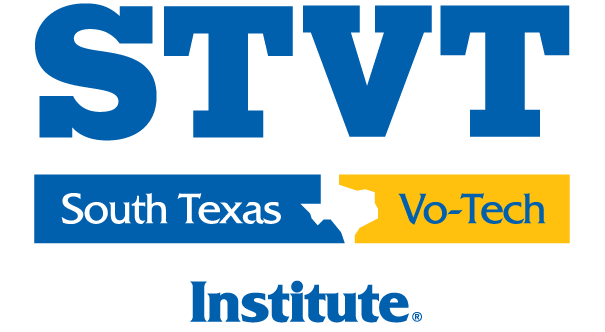Medical billing and coding specialists work in the healthcare field and convert medical procedures and diagnoses into codes for billing purposes. If you’re interested in the healthcare field but aren’t interested in the clinical side, medical billing and coding might be for you.
Like all careers, being a medical biller and coder has its own expectations and skills. Learning those skills is the next step to take. We’ll go over all the basics of what being a medical biller and coder really means to help you decide.
What Is a Medical Billing and Coding Specialist?
Medical billing and coding specialists make sure healthcare professionals, like doctors, get paid for their work. A medical coding specialist assigns codes to diagnoses and procedures performed during patient care. That’s not where it starts and ends, though, as there’s more to the career below the surface.
Technically speaking, medical billing and medical coding are two separate careers that are often lumped together because of their similarities. A coding professional translates healthcare information into standardized codes, requiring expertise in accuracy and attention to detail. To understand what being a medical biller and coder really means you have to understand what each separate job is and why they’re combined.
What Is Medical Coding?
Medical coding is a job that can be described as translating. Medical coders convert important healthcare information and patient data into an alphanumeric code. As part of their daily duties, medical coders review patient charts and patient medical records to ensure all information is accurate and up to date. To do this, a medical coder must be knowledgeable about medical terminology, anatomy, physiology, and various medical codes.
There are codes for the patient’s specific emergency as well as for the symptoms of that emergency, codes for the treatments prescribed by the doctors, and even codes for specific healthcare devices. Medical staff document the procedures and treatments which are then coded by the specialist.
When assigning codes, coders must ensure the codes reflect the proper diagnosis and all medical services provided. These codes are used because they’re essentially a universal language for all healthcare professionals and healthcare facilities to understand. To manage and assign codes, medical coders use coding software. So the medical coder is responsible for cataloging this information for record keeping and billing purposes.
What Is Medical Billing?
Medical billing specialists manage patient billing information, send out the healthcare bills to the patient, and submit claims to the insurance company. The billing process involves using the codes provided by the medical coder to create and submit claims to insurance companies. Medical billers also review and correct denied claims to ensure timely and accurate reimbursement.
A medical biller is also responsible for following up on insurance claims and denials as the funds that billers are responsible for collecting are what pays the bills of the medical facility they work for. Medical billers have a good understanding of insurance policies, healthcare regulations, and guidelines.
Why Combine the Jobs?
Medical billing and medical coding are two different fields. However, they’re inherently linked and ultimately both jobs are working towards the same goal. It’s only natural that you’ll often hear them as one job rather than separate ones.
Medical billing uses the codes recorded by a coder. These codes ultimately determine how much each service costs and what to bill. Having the medical biller also be the medical coder can streamline the process since they’re essentially a one-stop shop.
Key Skills
Success in medical billing and coding requires a unique blend of technical skills and interpersonal skills. Coding specialists must be knowledgeable in medical terminology to interpret patient records and clinical documentation. A strong understanding of coding systems such as the International Classification of Diseases (ICD) and Current Procedural Terminology (CPT) is essential to assign the correct codes to medical diagnoses and procedures. Familiarity with billing software and electronic medical records is also important as much of the billing and coding process is now digital.
Analytical skills play a big role in ensuring codes are applied correctly and in compliance with current coding guidelines and healthcare regulations. Attention to detail is crucial as even minor errors can lead to denied insurance claims or delays in insurance reimbursement. Good communication skills are necessary to work with healthcare providers, insurance companies, and other medical personnel to clarify information and resolve billing issues.
Coding specialists must also be organized and able to manage multiple billing and coding tasks simultaneously. Keeping up to date with changes in coding practices, healthcare regulations, and insurance reimbursement policies is also important to maintain accuracy and efficiency in this ever-changing field.
Work Environment
Medical billing and coding specialists work in various healthcare settings, medical offices, hospitals, and other healthcare facilities. With the rise of digital health records and secure online systems, many organizations now offer remote work opportunities, and coding specialists can work from home. The work environment is generally office-based, quiet, and comfortable, with most tasks done at a computer using billing software and electronic medical records.
While the physical demands are minimal, the job can be fast-paced and sometimes stressful, especially when meeting deadlines or navigating complex insurance requirements. Interactions with insurance companies, healthcare providers, medical billers, and other healthcare professionals are a regular part of the job, and the position requires strong collaboration and communication skills. Access to up to date computer systems and secure networks is essential to handling sensitive patient information and ensuring the accuracy of medical records and billing processes.
Salary and Job Outlook
How much you can make as a medical billing and coding specialist really depends on a few things—like where you work, how much experience you have, and whether you’re certified. According to the 2025 Medical Coding and Billing Salary Report, getting certified definitely pays off. Certified specialists earn about $66,186 a year, while those without certification bring in around $61,022. That’s an 8.5% boost just for being certified! So if you’re thinking about this career path, getting certified could be a smart move for your paycheck.
The job outlook for medical billing and coding specialists is strong with an expected growth rate of 9% through 2033. This demand is driven by the need for accurate medical records and efficient billing and coding processes in a growing healthcare industry. Earning certifications such as passing the CPC certification exam or other recognized certification exams can significantly enhance job prospects and increase earning potential for those pursuing a career in medical billing and coding.
How to Become a Medical Billing and Coding Specialist
Before we started you were probably asking, “what is a medical billing and coding specialist?” Now that we’ve answered the first question we can explain how you can prepare for such a job in the first place.
Some employers may require a postsecondary certificate or diploma and professional certification from applicants. Completing an associate degree or associate degree program in health information technology or medical coding can significantly enhance your job prospects and provide foundational skills recognized in the industry. There are several certifications that an aspiring healthcare billing specialist could earn, and there are also several important skills that employers may look for, such as analysis, integrity, and interpersonal skills. A health information technician is a professional who maintains and organizes patient medical records, ensuring their accuracy and security. This role is closely related to medical billing and coding and often requires a diploma or associate degree in health information technology.
At South Texas Vocational Technical Institute (STVT), we offer hands-on training for various trades, including medical billing and coding. You can learn to prepare for common tasks you may encounter as a medical biller and coder by enrolling in our Medical Billing and Coding program or another coding program. Invest in yourself and check out what STVT has to offer!
Career Progression
Medical billing and coding specialists have many opportunities for career growth and advancement. Obtaining specialized certifications such as the Certified Professional Coder (CPC) or Certified Coding Specialist (CCS) shows a high level of expertise and commitment to the profession. These credentials can open doors to higher-paying positions and more job security.
With experience and additional training coding specialists can move into supervisory or management roles such as coding coordinator or billing manager overseeing teams and ensuring compliance with healthcare regulations and coding guidelines. Some professionals choose to specialize in areas like risk adjustment coding or clinical documentation improvement further increasing their value in the healthcare industry.
Beyond traditional roles, medical billing and coding specialists can leverage their knowledge of medical terminology, coding systems, and healthcare regulations to transition into related fields such as health information technology, medical research, or healthcare consulting. By staying current with industry trends and continually updating their skills coding professionals can have a dynamic and rewarding career path with many opportunities for advancement and professional development.
To start a rewarding career as a medical billing and coding specialist, contact STVT today at (866)-480-9766 or fill out this form to learn more.
Disclaimers: Information within this blog is for general information purposes only. South Texas Vocational Technical Institute does not assume or guarantee certification/licensures, specific job/career positions, income earning potential, or salary expectations based on the programs offered at South Texas Vocational Technical Institute. Career and program information statements in this blog do not guarantee that programs or other information mentioned are offered at South Texas Vocational Technical Institute.


